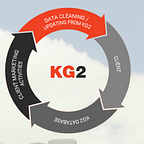Insightful Discussion on ESG Reporting in Australian Agriculture
Hey there, fellow eco-conscious readers! Welcome to our blog where we explore ESG reporting in Australian agriculture! ESG, or Environmental, Social, and Governance reporting, is becoming increasingly important in the farming industry. In this blog, we will delve into the insights of ESG reporting for Australian farms. We aim to provide valuable insights into how ESG reporting is shaping the future of agriculture down-under. Join us as we uncover the essential role of transparency in Australia’s farming landscape.
ESG? What is that, you ask? Well, ESG stands for Environmental, Social, and Governance — three big areas that tell us how sustainable and responsible an agricultural business is.
Do You Know?
To take a healthy measure towards ESG, the Australian Government made laws to cut emissions by 43% by 2030 and aims for no net emissions by 2050. This affects all parts of farming, from when food is grown to when it’s eaten. Also, Australia is making rules about ESG reporting on climate stuff. The rules, like the International Sustainability Reporting Standard IFRS S2, will likely start for big companies in July 2024. Then, all financial reports will need to follow these rules in the next 3 years.
So, Why Does ESG Reporting Matter In Australian Agriculture? Let’s break it down.
● Australia’s vast landscapes and diverse ecosystems make sustainable farming essential for preserving our environment. ESG reporting helps us keep tabs on how farms are treating Mother Nature — from water and energy use to reducing greenhouse gas emissions.
● But it is not just about the environment. ESG also shines a light on how farms treat their workers and the communities around them. Are they paying fair wages? Supporting local communities? These are vital social aspects that ESG reporting covers.
● Good governance ensures that farms are run ethically and transparently. Are they managing finances responsibly? Following regulations? ESG reporting gives us the inside scoop.
● Now, you might be wondering, who’s doing all this reporting? Well, it’s not just the big players. More and more Australian farms, big and small, are hopping on the ESG reporting. They are sharing their sustainability efforts in annual reports and other public documents, showing their commitment to a greener future.
● Australia is gearing up for mandatory climate reporting standards, making ESG reporting even more critical. These rules, based on international standards, will help track progress and hold farms accountable for their environmental impact.
More and more people in Australia are starting to talk about how farms can be more sustainable in terms of ESG. Big farming companies are leading the way by sharing information about how they are taking care of the environment, treating workers fairly, and managing their businesses well.
Many Australian farms are choosing to share this kind of information in their yearly reports and other public documents. They talk about things like how much water they use, how they manage waste, and how they treat their workers.
Some groups and programs in Australia, like the Australian Sustainable Agriculture Initiative (ASAI), encourage farms to talk about these things as part of their membership or certification requirements.
But it is important to know that not all farms report in the same way. Some big companies might have really detailed reports, while smaller family farms might not share as much.
Some Quick Insights on ESG Reporting:
- Growing Trend: In the last 10 years, more farms and agricultural businesses in Australia have started to share information about their environmental, social, and governance (ESG) practices. This shows that they understand how important it is to be open and responsible.
- Big Companies Lead: The bigger farming companies are more likely to report on these things compared to smaller farms. They usually have teams and resources specifically for keeping track of this information and telling others about it.
- Following Rules: Sometimes, the government makes rules about how farms should take care of the environment or be more sustainable. These rules can push farms to report on what they’re doing to follow them.
- Meeting Expectations: People who buy food, invest money, or work with farms are starting to expect more transparency and sustainability. So, farms are sharing more about what they do to meet these expectations and stay competitive.
- Working Together: Groups that represent farms and organisations focused on sustainability often encourage farms to report on these things. They share innovative ideas and help farms use the same methods for reporting.
These points show that more farms in Australia are starting to talk about their sustainability efforts, which is a positive trend for the industry.
Wrapping Up,
ESG reporting is not just a buzzword — it is a powerful tool for driving positive change in Australian agriculture. So, whether you are a farmer, consumer, or investor, keep an eye on those ESG reports. Together, we can cultivate a more sustainable and responsible future for Australian agriculture!
Understanding ESG reporting in Australian agriculture shows how farms are taking steps towards sustainability. As more farms share their practices, it creates transparency and accountability in the industry. To stay informed about the latest developments in ESG reporting and sustainable agriculture in Australia, consider reaching out to KG2 Australia. They can provide valuable insights and guidance for navigating the changing landscape of agricultural sustainability. Contact today to contribute to a more sustainable future for Australian agriculture with KG2 Australia.
